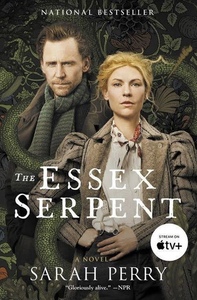You need to sign in or sign up before continuing.
Take a photo of a barcode or cover
Weird but interesting. I'm doubtful I would have read this if it weren't a book club book, but I'm not sorry I took the time. Cora is an interesting person, as are most of the other characters. I'll be interested to see what other books Perry writes.
Finely crafted story. Characters are real - horrid one minute and intriguing and oh so real the next
reflective
relaxing
slow-paced
Plot or Character Driven:
Character
Strong character development:
No
Loveable characters:
Yes
Diverse cast of characters:
No
Flaws of characters a main focus:
Yes
The setting is perfect, as are the descriptions of the english countryside throughout the seasons
I think there is something profoundly British about this book, that as a Canadian I just felt like they were all in on a joke I didn't quite get.
adventurous
dark
lighthearted
mysterious
sad
medium-paced
Plot or Character Driven:
Character
Strong character development:
Yes
Loveable characters:
No
Diverse cast of characters:
No
Flaws of characters a main focus:
Yes
When I started reading Perry’s novel I didn’t really know what to expect. I knew there had been a hype around it when it was published but that wave kind of passed me by. I was in quite a deep fantasy phase and historical fiction didn’t really feature on my radar. So when I did eventually get around to reading it I was open to wherever it wanted to take me.
It was a slow start. The plot starts in 1893 with a widow, Cora, who is rediscovering herself and a doctor, Luke, that is besotted with her. In the early stages I thought I already knew how it was going to end and it wasn’t a journey I wanted to go on. Tangent: when I told my granny what I was reading her response was ‘oh yes I remember, that’s the one with the vicar’. Okay, so there was a vicar who featured prominently enough for them to be the identifying factor of the novel for my granny. I read on.
The vicar, William, is introduced when Cora encounters him in a marsh and mistakes him for some sort of countryside tramp or unkempt farmer. Here again I thought, ‘oh here we go’, a lively, newly-single lady of the town encounters a strong, rugged man, the very antithesis of the vicar she imagines, I wonder where this will go. Again, I was wrong, sort of.
One of my pet peeves is when I character (normally female but not exclusively) that I have come to admire loses their integrity for a man. I enjoy romance as much as the next person but a ‘they lived happily ever after’ at the expense of the woman’s personality grates. To be clear, I don’t believe this to be t true of every love story but there are enough that compromise hundreds of pages of character development by concluding with a two dimensional leading lady. Thankfully, that cannot be said to be the case with Perry’s Cora Seaborne. The romance is there, the will they won’t they suspense is there, the mutual, conflicted lust is there, but the character remains true. It is this that keeps me thinking about The Essex Serpent even now – the relationships.
The relationship between Cora and William develops as one might expect but slowly and honestly and ends, in my opinion, the only way it could. Martha, Cora’s confidante, is another excellent example of a female character who is unwavering in her morals and her politics. Yet, Perry carves the character with increasing self-reflection that exposes Martha’s hypocrisies and inconsistencies. Personally, I would enjoy a prequel or sequel focusing on Martha’s story as her development strikes me as all the more interesting. I base this on her working class background, political outlook and the relationship we leave her in that embraces love but rejects marriage – a 19th century taboo.
The whole of this novel I felt like I was waiting for something. In the beginning, this encouraged me to read on. By the end, I realised the anticipation was the whole point. Waiting for the serpent, for a death, for a relationship to blossom to the point of explosion. These phenomena resolved themselves without much ado but in their pursuit the novel found itself. For me, the Essex Serpent is a story of the mind, the serpent's reality is inconsequential and all the more intriguing for it.
It was a slow start. The plot starts in 1893 with a widow, Cora, who is rediscovering herself and a doctor, Luke, that is besotted with her. In the early stages I thought I already knew how it was going to end and it wasn’t a journey I wanted to go on. Tangent: when I told my granny what I was reading her response was ‘oh yes I remember, that’s the one with the vicar’. Okay, so there was a vicar who featured prominently enough for them to be the identifying factor of the novel for my granny. I read on.
The vicar, William, is introduced when Cora encounters him in a marsh and mistakes him for some sort of countryside tramp or unkempt farmer. Here again I thought, ‘oh here we go’, a lively, newly-single lady of the town encounters a strong, rugged man, the very antithesis of the vicar she imagines, I wonder where this will go. Again, I was wrong, sort of.
One of my pet peeves is when I character (normally female but not exclusively) that I have come to admire loses their integrity for a man. I enjoy romance as much as the next person but a ‘they lived happily ever after’ at the expense of the woman’s personality grates. To be clear, I don’t believe this to be t true of every love story but there are enough that compromise hundreds of pages of character development by concluding with a two dimensional leading lady. Thankfully, that cannot be said to be the case with Perry’s Cora Seaborne. The romance is there, the will they won’t they suspense is there, the mutual, conflicted lust is there, but the character remains true. It is this that keeps me thinking about The Essex Serpent even now – the relationships.
The relationship between Cora and William develops as one might expect but slowly and honestly and ends, in my opinion, the only way it could. Martha, Cora’s confidante, is another excellent example of a female character who is unwavering in her morals and her politics. Yet, Perry carves the character with increasing self-reflection that exposes Martha’s hypocrisies and inconsistencies. Personally, I would enjoy a prequel or sequel focusing on Martha’s story as her development strikes me as all the more interesting. I base this on her working class background, political outlook and the relationship we leave her in that embraces love but rejects marriage – a 19th century taboo.
The whole of this novel I felt like I was waiting for something. In the beginning, this encouraged me to read on. By the end, I realised the anticipation was the whole point. Waiting for the serpent, for a death, for a relationship to blossom to the point of explosion. These phenomena resolved themselves without much ado but in their pursuit the novel found itself. For me, the Essex Serpent is a story of the mind, the serpent's reality is inconsequential and all the more intriguing for it.
Never judge a book by its cover, I guess. Even when the cover is gorgeous. I didn’t really enjoy the structure and the redundant stereotypes about the historical period this was supposed to be set in. It really does feel like a contemporary view of a past era, with characters hard to connect to given they don’t really feel like people. From the empty and predictable dialogue to uninspiring descriptions, I’m not sure I could give it any more than 2 stars.
Enjoyed recognising the place names and interesting Victorian settings and incidents but ultimately not my sort of book.
This book continued one of my themes for this year, being historical english fiction. It's set in maybe Victorian england (or perhaps a bit earlier), and is about a recent widow who moves to Essex on the hunt for the serpent. Apparently the serpent has appeared after a recent earthquake, and has been terrorising the villagers, killing people and livestock. The widow believes everything can be explained by science and believes she will find a prehistoric creature. Whilst in the village she meets the local priest, and they fall in love (both without really realising), problem is the priest is already married (and in love with his wife). It was a funny book, there seemed to be a bit about reason versus superstition, but there seemed to be too many characters, and some plot lines never seemed to go anywhere.
This was wonderful - I have found a new favourite. First of all, a round of applause for Perry's writing style. Thank you, kind author, that was superbly done. I could imagine myself standing in the mud, of which there was definitely a lot. While I didn't personally like every single one of the characters, I did think that all were very interesting and had a clear role to play.
Now, I do understand that this is not for everyone. Let me just tell you now: if you want a lot of action and adventure, this is not the book for you. In my opinion, this book is much more about people and their inner worlds than it is about anything else. Sure, you wonder what the hell the serpent actually is, but that mystery is second to the characters figuring out and dealing with their thoughts, emotions, loves, and lives.
I loved it and will definitely be picking up other books by the author soon.
Now, I do understand that this is not for everyone. Let me just tell you now: if you want a lot of action and adventure, this is not the book for you. In my opinion, this book is much more about people and their inner worlds than it is about anything else. Sure, you wonder what the hell the serpent actually is, but that mystery is second to the characters figuring out and dealing with their thoughts, emotions, loves, and lives.
I loved it and will definitely be picking up other books by the author soon.


